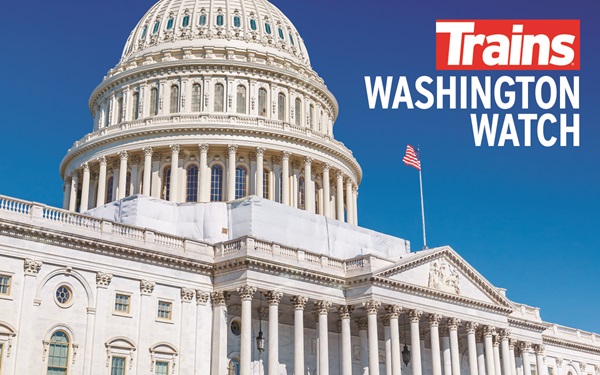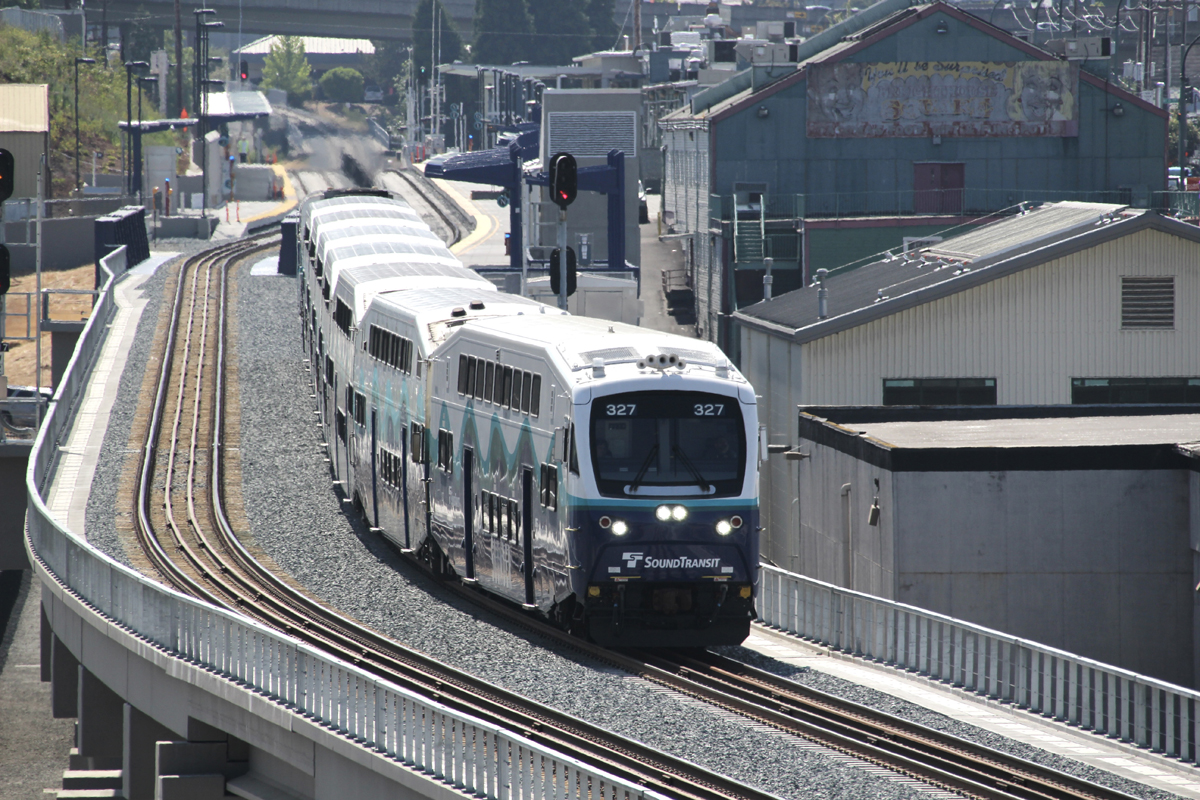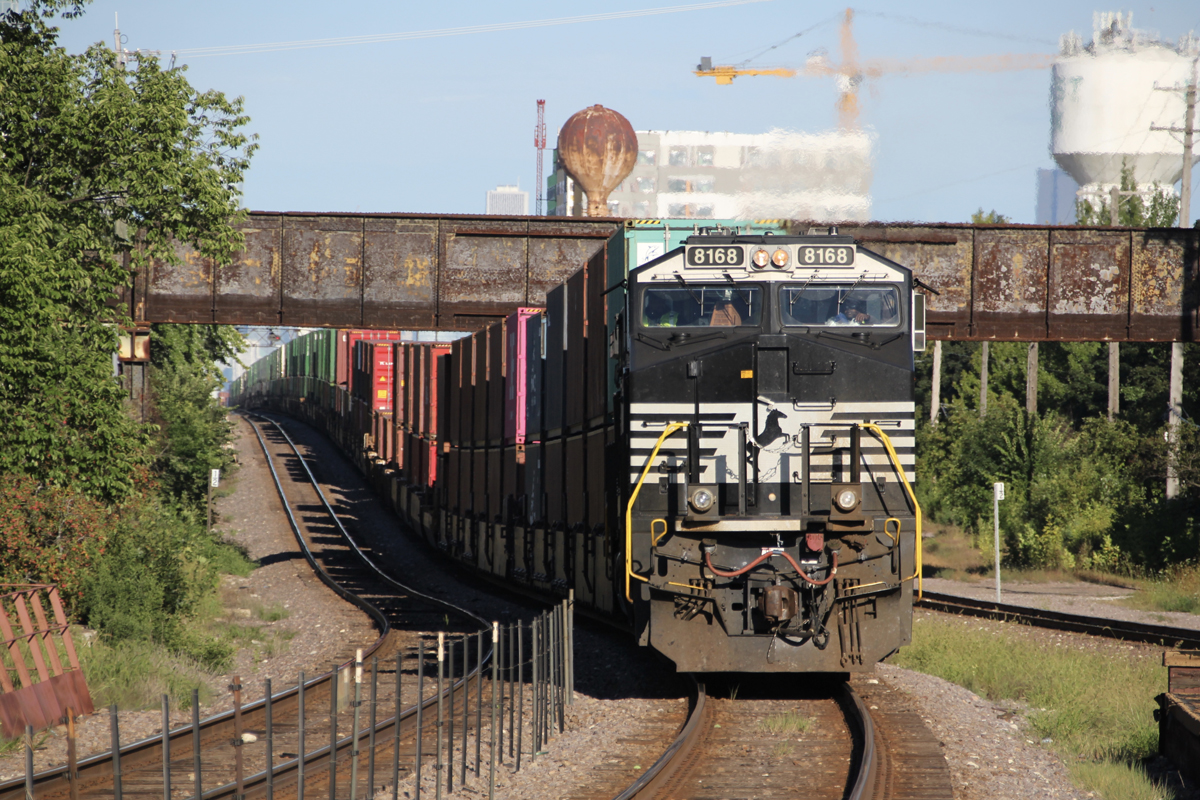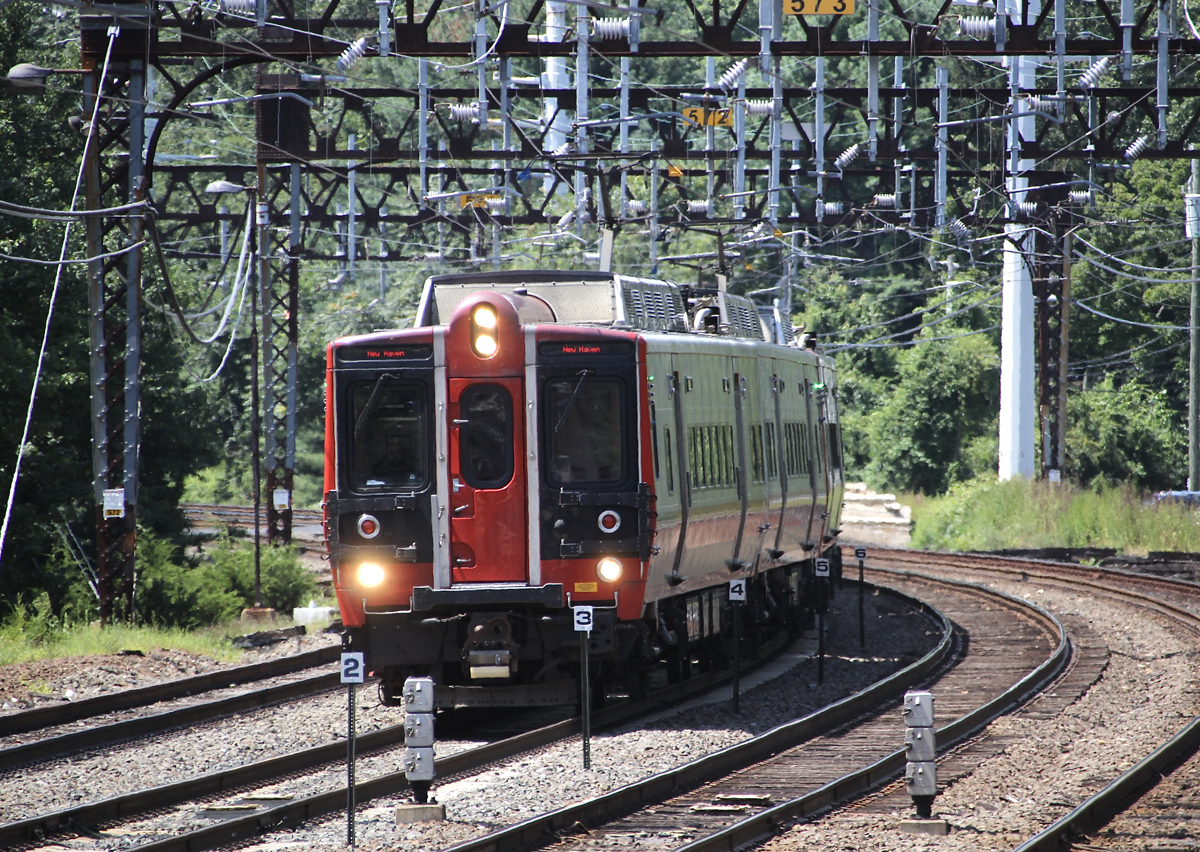 WASHINGTON — The House of Representatives has approved legislation imposing the tentative agreement between railroads and unions, which would block a rail strike that could begin as early as Dec. 9.
WASHINGTON — The House of Representatives has approved legislation imposing the tentative agreement between railroads and unions, which would block a rail strike that could begin as early as Dec. 9.
CNN reports the House passed the measure by a 290-137 vote, with 79 Republicans joining Democrats in voting for the bill, while eight Democrats voted against.
A separate vote, which would add seven days of paid sick leave to the provisions of the tentative agreement reached in September — and based largely on provisions of the Presidential Emergency Board convened this summer — passed by a 221-207 vote, with the support of all Democrats voting as well as three Republicans, the website The Hill reports.
But the move to separate the two votes will allow the Senate to approve the measure imposing the settlement — which it is expected to do — without necessarily ratifying the sick-leave provision, which has a more uncertain future.
The American Chemistry Council issued a statement commending the House for its action, and calling for the Senate to follow suit.
“Without a final solution from Congress, in less than a week, railroads will begin suspending shipments of chemicals that are vital to disinfecting water, producing food and refining gasoline,” ACC CEO Chris Jahn said. “There is no time to waste. We urge the Senate to act quickly and approve the legislation passed by the House that implements the terms of the Tentative Agreement.”
Before the vote, the U.S. Chamber of Commerce had called for the House to pass the legislation adopting the tentative agreement as “a necessary resolution to avert a catastrophic labor strike,” while calling the sick-time provision “an unworkable, one-sided modification to a labor agreement that has already been agreed to by the leadership of all 12 unions representing rail works and a majority of all rail workers.”
The SMART-TD union, whose train and engine service members were among those to vote down the tentative agreement, said in a statement prior to the vote that it did not support congressional intervention.
“Our members want and need sick leave,,” the SMART-TD statement reads, “but even more so, they need relief from the damning effects of operational changes made by the railroads over the last five years. If Congress truly wants to take action to improve the industry for our members, then we recommend legislation that will work to reverse the devastation of Precision Scheduled Railroading.
“As for this moment, we ask these elected leaders to stand with our essential workers and urge the House and the Senate to vote in favor of guaranteeing seven days of paid sick leave to rail workers.”
The Association of American Railroads called on the Senate to quickly impose the terms of the tentative agreement, while reiterating its opposition to the sick-time measure [see “House to vote today …,” Trains News Wire, Nov. 30, 2022].
“The Senate must now act quickly to implement the historic deals reached at the bargaining table and already ratified by eight of twelve unions,” AAR CEO Ian Jefferies said in a statement. “Unless Congress wants to become the de facto endgame for future negotiations, any effort to put its thumb on the bargaining scale to artificially advantage either party, or otherwise obstruct a swift resolution, would be wholly irresponsible, and risk a timely outcome to avoid significant economic harm.”
Meanwhile, the Competitive Enterprise Institute, which describes itself as a free-market public policy organization based in Washington, says congressional intervention is premature.
“While the threat to the economy posed by a rail strike was real, lawmakers should have at least waited until workers officially walked off rather than short-circuiting the talks. Most deals are, after all, made at the 11th hour,” says Sean Higgins, CEI labor policy expert. “Government intervention in the private sector, especially when forcing a contract on parties, should always be a last resort. Today’s action merely lays the groundwork for more extensive interventions in the future.”
— Updated at 1:05 p.m. CST to include SMART-TD statement; updated at 1:55 p.m. with statement from AAR, comment from Competitive Enterprise Institute. This is a developing story. Watch Trains News Wire for more information as it becomes available.














Sounds to me like a 19th century system Charles Dickens would understand needs to be updated.
Eric/Chris/James,
Thank you all for your detailed explanations.
So, to summarize: “working on your rest” does not mean working during your 10 hour rest period, because that would be illegal. It means being called as early 8 hours into your rest period to report for another assignment after your 10 hours hours of rest are up. And you have minutes to respond to the call (if not, you are “AWOL”) and 2 hours after your rest period to actually show up at the terminal. Is that about it?
Also, you are paid a set amount for a trip, not by the hour. Yes?
Again, thanks,
Pete
That’s it in a nutshell. Our pay rate system is very convoluted and would take a math professor to explain-insert sarcasm, but yes we are paid per trip based on miles that you run from your home terminal to your away from home terminal.
Eric,
Thank you for your information, but, again, what does “working on your rest” mean?
Also, you mention “vacation time” (is that paid?), how much and what is the distinction between that and “plds” (paid leave days?)?
As you can tell, I’m not “in the business”.
Pete
Ok working on rest means getting called on our required 10 hour rest period between tours of duty as required by federal law. Vacation time is paid and is paid at 1/365 of your previous years earnings, and Pld stands for personal leave days. Plds pay at a set rate and the amount you have accrue as you gain years of service but like I said they are heavily regulated by the carriers and are next to impossible to get if you say get the flu or whatnot and need a day of two to recover- the only recourse we have in instances like I mentioned is to what we call lay off or take ourselves off the rotation board. This is where the rub begins, the railroads won’t grant Plds in instances of a day or two for sicknesses or to take a day off to just be home so we have to “lay off” the board just to get the day off and that in turn subjects us to availability policies and points deductions, which I turn can only be added back to by work8ng on the railroad I work for 14 days straight without taking a day off. That’s on many occasions working on our rest every 10 hours for those 14 days straight and all the while being away from home more than half that time. There are a lot of changes coming in the next contract that hopefully takes the meat out of their availability policy bs but no one’s certain how all it will work yet since it’s still very new. The point system we have right now in a nutshell without going into crazy detail gives us 1 day off every 14 days and that doesn’t take into account hours worked trips taken or anything like that, just callender days between days off. Imagine yourself getting home after working 12 hours all night going off duty and 10 hours later getting called right back to work every day, day in day out for 14 days straight….. it’s exhausting no matter the person. The railroad expects that routinely and any less labels you a part time employee and not protecting your job. Many train crews including me can rack upwards of 200 hours or more a month and if we take more than those two days off in any given month we’d be considered part time employees and after running out of points terminated.
Peter, working on your rest means that you can be called to back to work after 10 hours of “rest.” The call back to work can occur after 8 hours of “rest.”
It goes like this:
1. Work for 12 hours
2a. Rest for 10 hours
2b. Call to work at hour 8 of your rest
3. Work for 12 hours
4a. Rest for 10 hours
4b. Call to work at hour 8 of your rest
“Rest” includes many things, such as, to and from work, showering, eating, banking, shopping, oh, and sleeping. As you can see, “rest” can be very deceiving. I’ve simplified the process significantly.
“rest” is merely defined as the amount of time required by law that an employee must be off duty before they can be on duty again. As you say, “rest” includes driving back home, eating, sleeping and doing everything else one needs to do to get ready for work again.
I’ll also remind everyone that while federal law says one can only be working for 12 hours, on duty time can be more than 12 hours because one can reach the 12 hour mark while still on the train stuck out in a siding some place waiting for a ride either back to the home terminal or on to the away from home terminal for the hotel. Thus, on duty time could be 14 or 15 hours, or more. No matter how many hours one is on duty, “rest” is 10 hours however your phone rings 2 hours or 90 mins before your next on duty time and that phone call will wake you up so it’s NOT 10 hours of undisturbed time off from work to sleep but less than.
I believe you can work a maximum of 6 consecutive days before needing 2 consecutive days off, according to law of hours of service.
By all means, if I’ve got any of these details wrong, please feel free to correct. This is how it worked in my days awhile back before I retired.
As Eric said, vacation time is scheduled the prior calendar year and making changes is possible but requires contacting the union who then needs to make the adjustments with the railroad. Also, as he said, Personal Leave Days are requested and can be denied, to “protect the needs of the service”. So, the only guaranteed way of getting a day off is “laying off sick” and this particular method of time off is the variety which gets you into trouble with discipline and eventual termination of your employment.
Can’t see the adding of 7 paid sick days by congress as something the railroads will entertain. Anyone think that plan survives a court challenge?
It amounts to under 3% of the record profits and stock buybacks amounting to over $180,000,000,000 over the last decade
Not sure exactly what “working on your rest” means. Must be a shorthand term.
As it stands now, how many days off do train/engine/yard workers get in a week and in a year? As I understand it, the days off are unpaid (Yes?). My understanding of their gripe is that they very often cannot get the needed approval to use these days and that they must be approved far in advance.
Also,there was something about not being able to schedule/use “sick time” except on Tuesday – Thursday in the new contract. True? Since there is only 1 day of paid sick leave in the new contract, previously what days were used for short-term and long-term illness?
Pete
We get no regularly scheduled days off other then vacation time mr marcher. Vacation has to be scheduled by November the previous year and plds ( if you can get them ) have to be scheduled at least 24 hours in advance, the railroads will tell the masses that we get them yet they won’t tell the massses that they are tightly controlled by them and they very routinely deny Pld requests for such things as crew availability- which is understandable but I promise you no matter if the boards are full to the gills they will emphatically deny no matter what. It boils down to this, they want us to take time off that effects our points so we get intimidated into possibly not taking a day off simple as that, it’s all intimidation on their part to keep people from ever taking time off for whatever reason. Lately it’s been backfiring on them as no one is anymore and has taken the attitude of there’s nothing to lose the railroads gonna fire us anyway. We get no short term or long term illness benefits through the railroad either. The only illness benefits we get are paid through the railroad retirement board and you can only claim those if you take a medical leave through the railroad that once again has to be approved through them. The railroads are disseminating those falsehoods to that we get some sort of illness benefits through them and they’re very crafty in their wording in press releases to that, yet they won’t tell the truth that the railroad retirement board benefit payouts has nothing to do with the railroads per se only that they have to contribute to the funds for them, that’s it.
The railroads can”t find workers now. As stated in the article, Congress should stay out until there is an actual strike. Now the railroads can sit back knowing the Federal government is backing them. Big business loves big government.
It doesn’t matter what law Congress passes and the president signs. Rail labor isn’t going to work under these conditions. Furthermore the next generation of labor will find other jobs, not railroading.
The fundamental issue is not money, it’s TIME. It’s time to have a life other than working continuously on your rest. It’s the security of knowing you won’t be fired for marking off to take care of medical or family issues.
People who work a set 8 or 10 hour schedule with weekends, paid vacation, paid sick leave and Federal holidays off do not understand this concept. Certainly, members of Congress don’t understand the concept.
1) The house didn’t’ pass a “Resolution”. They passed a law. Resolutions are just recommendations, even though the law resolves a pending strike. Please learn about Congress when you make headlines.
2) Will be interesting to see how the Unions respond to a potentially unconstitutional law.
According to the Wall Street Journal, which went into detail explaining why it was a resolution that the house passed and not a law, take your issue to their congressional legal scholar
Hoping for wildcat strikes. If a union doesn’t have the power to withhold their labor collectively, the individual workers should do it themselves.
So much for pro-union democrats.
Dem’s no longer support Unions=more Republican votes next time around…Politics do not belong in Union/Management negotiations Period!
Republicans may not be much better, if their past voting history is any indication. Today, 207 Republican representatives voted against giving paid sick leave for rail workers.